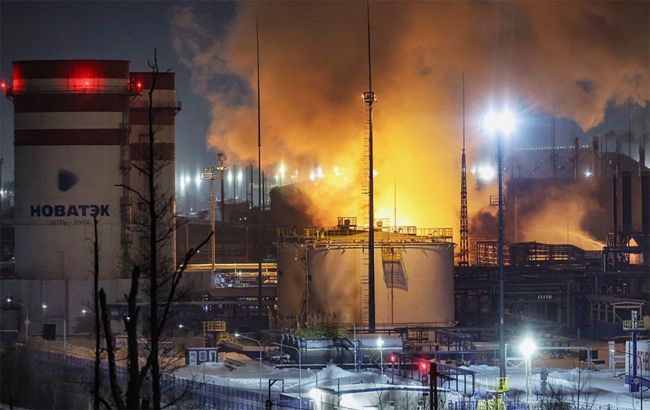Russian diesel exports hit 5-year low after drone strikes on refineries
 Almost half of Russian oil refineries were under attack by Ukrainian drones (photo: Russian media)
Almost half of Russian oil refineries were under attack by Ukrainian drones (photo: Russian media)
Ukrainian drone strikes on oil refineries in the aggressor state have pushed diesel exports down to their lowest level since 2020, Financial Times reports.
Since the beginning of August 2025, 16 out of 38 Russian oil refineries have been struck, some of them attacked by drones several times. Effective strikes disrupted refining capacity by more than one million barrels per day.
The Russian authorities have begun discussing a complete ban on diesel fuel exports until the end of the year. In the aggressor state, a ban on gasoline exports has been in effect for the past few months, but diesel sales abroad continue without restrictions.
In September, diesel fuel exports are expected to decline to the lowest monthly level since 2020 if the current pace continues. At the same time, FT notes that there is no diesel shortage in the Russian domestic market, and production exceeds demand by more than 50%.
Ukrainian drone strikes reduced oil refining in the aggressor state by almost one-fifth on certain days and cut exports from key ports. Currently, there are no queues at Russian gas stations; however, some grades of gasoline, such as AI-92 and AI-95, are often unavailable.
At the same time, the situation is not as favorable for private gas stations, which face difficulties in purchasing gasoline due to reduced refining and high interest rates (17%). Gas stations owned by large oil companies have not experienced changes in their operations.
Strikes on Russian refineries
In the summer of 2025, Ukraine resumed strikes on Russian refineries and oil pipelines. This came in response to Russia's violation in June of an undeclared moratorium on mutual strikes against energy facilities.
In addition, according to Reuters' calculations, drone strikes have disabled facilities accounting for at least 17% of Russian oil refining capacity, or approximately 1.1 million barrels per day.


